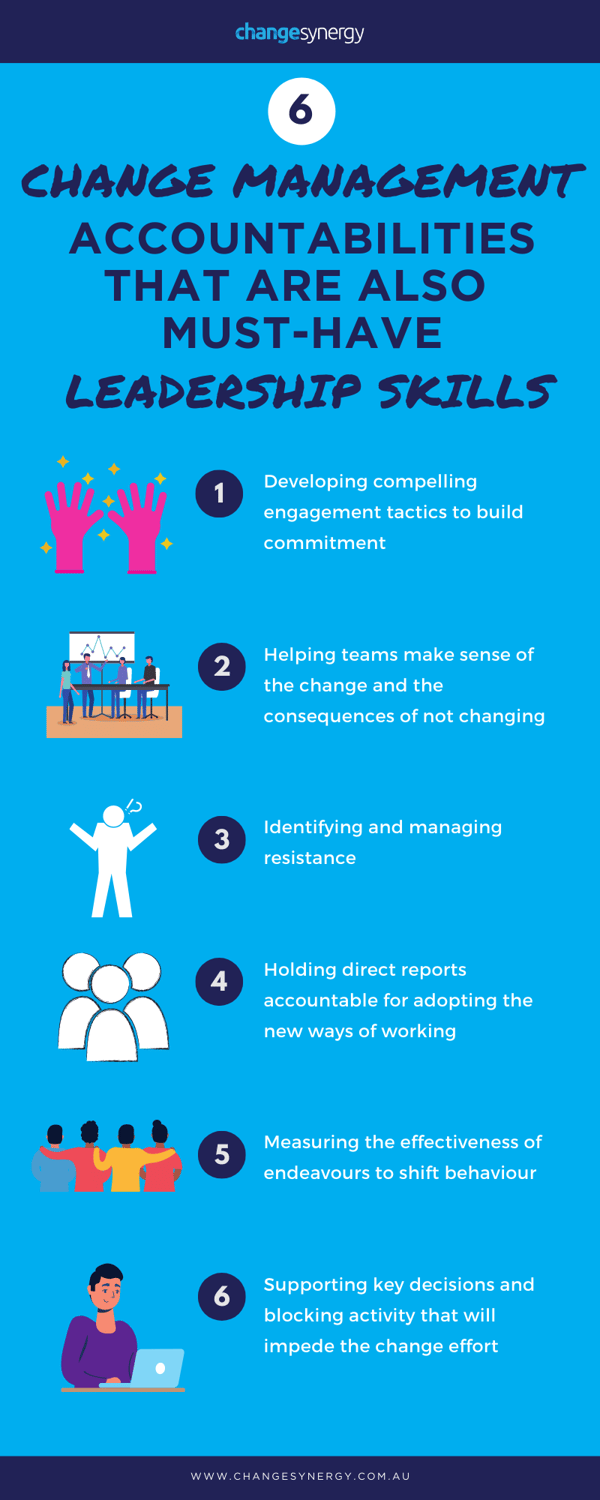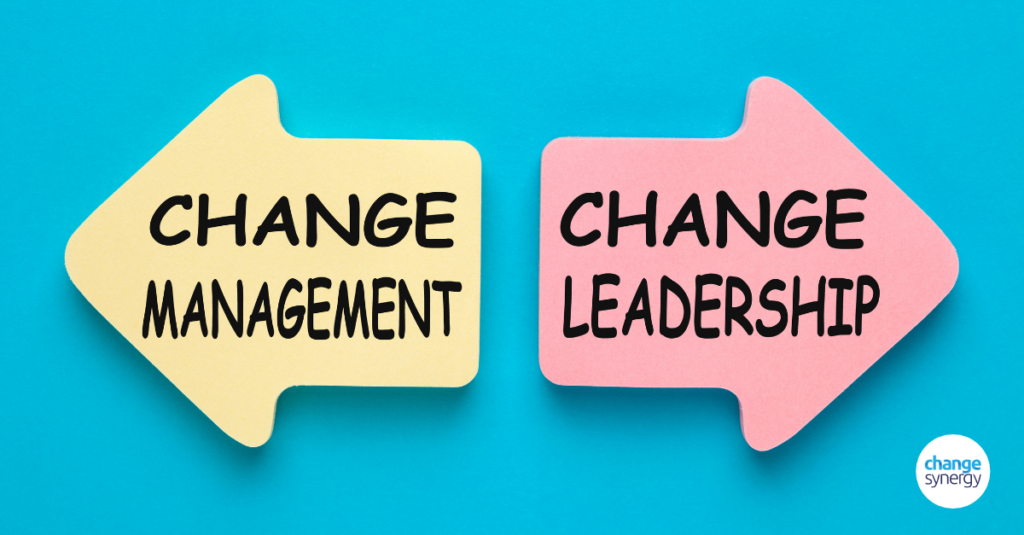“One major reason organizations struggle is because they treat both leadership development and change management as separate rather than interrelated challenges.” – R. Quinn and R. Quinn in HBR
An ASX top 20 company was boosting its information security. Soon, all people leaders would be responsible for auditing their team members’ access to key systems – a significant behavioural change that needed to be led from the top.
To garner support, the Project Sponsor visited leadership teams across the organisation to share the what, why and how. He was nervous, anticipating at best a lukewarm response – who enjoys audits? – but the reaction was surprisingly positive.
He started enjoying the visibility this gave him and the opportunity to improve his network and profile.
Unfortunately, he didn’t share the same information with his direct reports – all managers themselves.
One month later, at a governance forum, those managers dug their heels in when they were asked to approve the technical release of the new audit. They hadn’t heard anything about what was changing.
The release almost didn’t happen that weekend, a blow the project’s budget could ill afford.
It was a classic case of a senior leader not understanding his role as a change leader.
Why this needs to change
This story isn’t unique.
In our ongoing research with Deakin University, only 27% of those surveyed agreed that their leadership is trained in leading change. Of the 27%, more than half only slightly agreed.
Is it little wonder that lack of leadership is consistently one of the top two causes of organisational change failure?
Leading change is a must-have leadership skill
Most organisations today invest in leadership development and at least a rudimentary change management approach – training and communications, for example.
Very few organisations develop change leadership capability – the combination of the two. This creates a gap.
In addition to coaching and giving feedback – what leadership development programs often focus on – leaders need to understand their accountability for managing change and how to do it.

Change leadership accountabilities
- Developing compelling engagement tactics to build commitment
- Helping teams make sense of the change and the consequences of not changing
- Identifying and managing resistance
- Holding direct reports accountable for adopting the new ways of working
- Measuring the effectiveness of endeavours to shift behaviour
- Supporting key decisions and blocking activity that will impede the change effort
These accountabilities should be included in change deployment plans, benefits realisation and built into leaders’ KPIs.
These are learned skills that require development and practice, just like coaching and giving feedback.https://play.hubspotvideo.com/v/6595350/id/35429724343?renderContext=embed-id-selector&parentOrigin=https%3A%2F%2Fblog.changesynergy.com.au&pageId=25922902881#hsvid=599ab449-174e-4b27-824d-f89f4a65cbd3
Change leaders are also role models
We often hear middle and front-line leaders justify their passive role in change because their leaders have failed to inspire and engage them. Because change leadership isn’t role modeled for them, they don’t inspire their own teams – and so on throughout the organisation.
What’s worse, local leaders may feel disempowered because they haven’t had their own concerns managed, and they may pass on their cynicism and negativity.
To create change leadership – much more powerful than rudimentary change management – senior leaders need to step up to the plate and role model the behaviours of a change leader.
How the story ends
That security uplift? It got in, on time, scope, and mostly within budget – but there wasn’t any true commitment to the new ways of working.
On the Sponsor’s direction, just one month after go-live (without a full audit completed), the project team moved on, leaving the IT Security team to own the new process and wrangle the people leaders.
How does your organisation support leaders to become change leaders? Share how in the comments.


